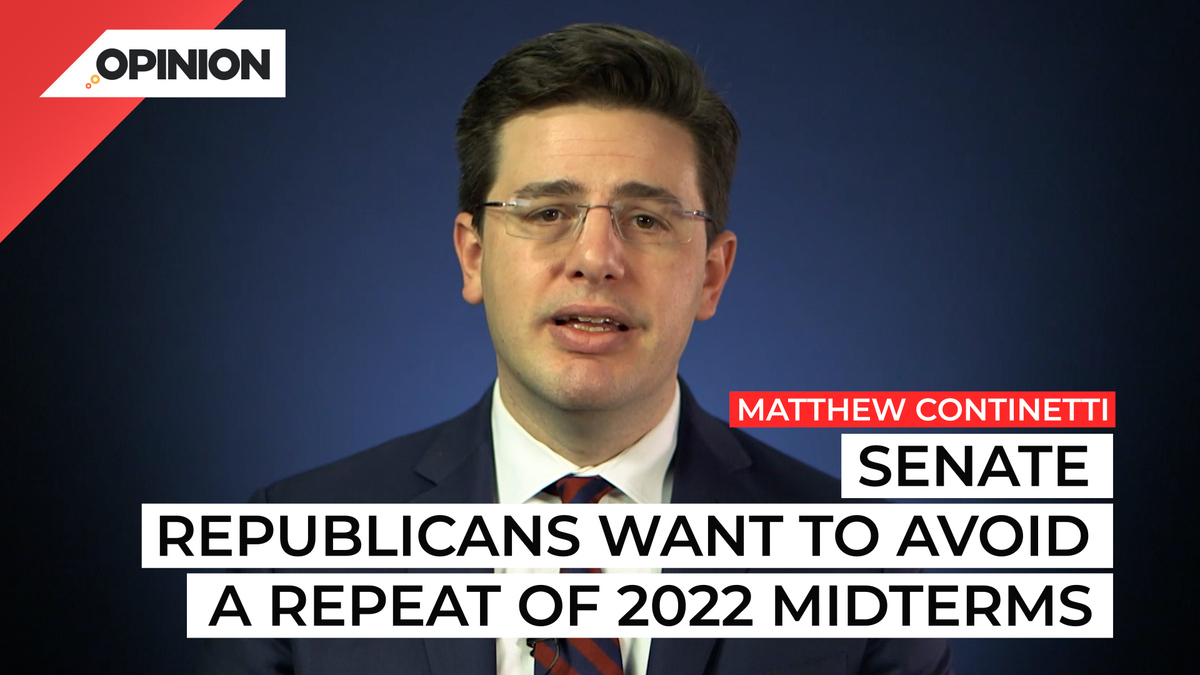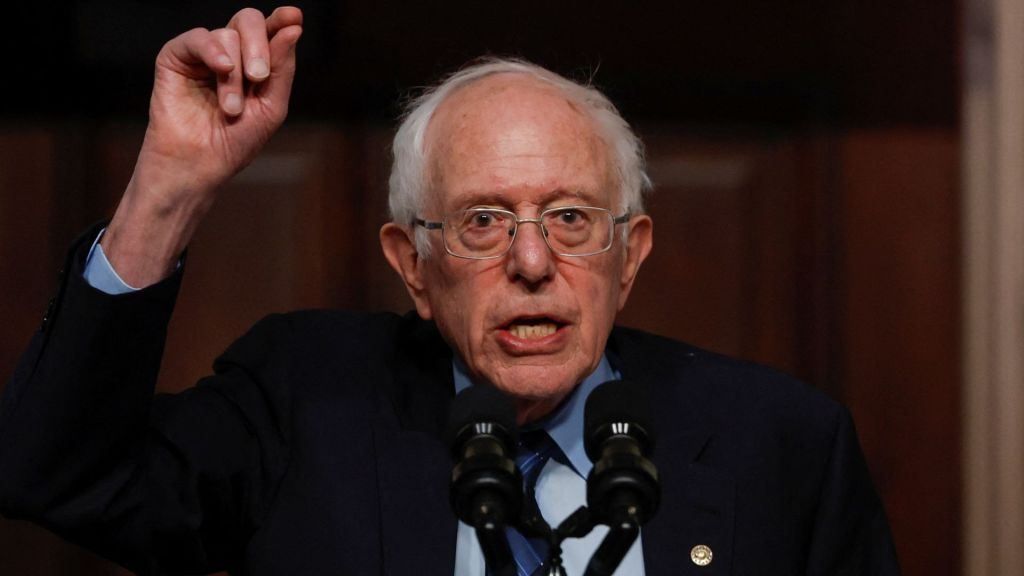
Commentary
-
Our commentary partners will help you reach your own conclusions on complex topics.
At first glance, Republicans are on their way to capturing the Senate. They need a net gain of two seats, or one if the GOP wins the presidency, to take control of the chamber. And they have plenty of targets. Of the 34 seats up for grabs, two-thirds are held by Democrats or by independents who caucus with Democrats. Moreover, Democrats must defend three seats in states that backed Donald Trump by considerable margins in both 2016 and 2020.
The Democrats also must defend five additional seats in states that President Biden won by less than five percent. In contrast, there are no Republican incumbents from Biden states, and just two whose previous election margins were below five percent. Ted Cruz of Texas and Rick Scott of Florida come from states that Trump twice won handily, and that are more than likely to be red next year as well. But looks can be deceiving.
The last election cycle also seemed promising for Senate Republicans. They held 50 seats, enjoyed a favorable political environment, and eyed potential pickups in three states that Trump lost narrowly in 2020. They ended up losing one seat, and they’ve been squabbling with each other ever since. Senate Republicans want to avoid a repeat. As always, candidate quality will be essential. A good candidate is likable, telegenic, fluent in the issues, quick on his feet, and appropriate to the culture of his state. To avoid a replay of 2010, 2012, and 2022, Senate Republicans not only will have to put up a presidential nominee who can win the battlegrounds of Georgia, Arizona and Wisconsin, they also will have to choose Senate candidates whose personal traits and policy preferences don’t send independents and suburbanites running for the hills.
Consider the four races that the University of Virginia Center for Politics classifies as either “lean Republican”, or as toss-ups. The most vulnerable incumbent is Senator Joe Manchin of West Virginia, whose seat is rated “lean Republican.” The GOP hopes that the 75 year-old Manchin will announce his retirement, guaranteeing a pickup and freeing money for other contests. If Manchin does run, he faces an uphill battle, but the degree of difficulty depends on his opponent. West Virginia is no slam dunk.
The new head of the National Republican Senatorial Committee, Steve Daines of Montana, has a keen interest in defeating his fellow Montanan Jon Tester. Don’t underestimate Tester, though. Behind his good ol’ boy persona is a shrewd politician who has impressed me since I first met him in 2006. Sherrod Brown of Ohio, like Manchin and Tester, is a Democrat who has thrived in a red state thanks to talent and luck. Brown’s talents include a knack for retail politics and economic nationalism that appeals to populace of all stripes and a constituent service program that is well regarded on Capitol Hill and much appreciated at home.
Brown’s luck is his timing. All three of his senate campaigns took place in Democratic years. He draws opponents who lack personality and who carry baggage. The final toss-up, Arizona, will feature several familiar faces. The GOP doesn’t have a frontrunner. Tech executive Blake Masters, who lost to Senator Mark Kelly last year by four points, is contemplating another bid. Former news anchor Kari Lake, who lost the governor’s race to Katie Hobbs last year by less than one point, met with NRSC officials in Washington in early February. If the Arizona GOP nominates Lake or Masters or another ultra-MAGA social media personality, a chunk of the party is likely to back incumbent Kyrsten Sinema, and the Democrats would be one step closer to keeping their Senate majority.
If Republicans are serious about winning the Senate and potentially gaining unified control of the federal government, they need to select candidates for office who appeal not only to the grassroots, but also to independent voters, and who understand that Americans want common sense answers for pressing economic and social problems, not conspiracy theories, harsh rhetoric and spite. If Republicans are serious about winning the Senate, they need to get serious about who represents their party. They’ve blown it once. They can’t afford to blow it again.
-
Trump’s baby-faced bulldozers just getting started
President Donald Trump leads the youngest group of top Cabinet officials and advisers of any president in more than three decades. Age was a central issue in the 2024 campaign, with voters expressing deep concerns about former President Joe Biden’s ability to begin a new term at 82. However, Trump is now the oldest person… -
New Orleans attack shows US must put ISIS on defense
At least 15 people have now died following what investigators say was a lone-wolf terrorist attack carried out by a U.S. Army veteran in New Orleans over New Year’s. The suspect publicly declared his allegiance to ISIS prior to the attack, and he flew an ISIS flag from the rented vehicle he used to run… -
The Trump honeymoon will not last
When President-elect Donald Trump won the presidency in 2016, his victory was marked by celebration but also immediate backlash, including widespread protests and the rise of the “resistance” movement. Trump’s job approval rating never exceeded 47%, making him the first president in history to never reach 50% approval in the Gallup poll during his term.… -
Why the presidential election result wasn’t even close
President-elect Donald Trump is the first person in over 120 years to be elected to two non-consecutive presidential terms. He swept every swing state and made significant gains among Hispanic voters, narrowing Democratic margins in traditionally blue states like Virginia and New Jersey. He won the Electoral College decisively, although the national popular vote margin… -
Joe Biden’s failed foreign policy legacy
On Wednesday, Oct. 16, Democratic presidential nominee Kamala Harris faced tough questioning on Fox News, where host Bret Baier pressed her on immigration, the economy and the Biden administration. When asked what she would do differently from President Biden, Harris responded, “Let me be very clear, my presidency will not be a continuation of Joe…
Latest Opinions
-
 Getty Images
Getty Images
Did Trump violate the Hatch Act with his Tesla White House event?
-
 Getty Images
Getty Images
Taliban encouraging content creators to reshape Afghanistan narrative
-
 Getty Images
Getty Images
Yankees react to latest injury, ace pitcher Gerrit Cole will miss 2025 season
-
 Reuters
Reuters
Ukraine accepts ceasefire plan by Trump Administration
-
 Getty Images
Getty Images
Wisconsin school district settles lawsuit with former teacher for $20,000
Popular Opinions
-
In addition to the facts, we believe it’s vital to hear perspectives from all sides of the political spectrum.






